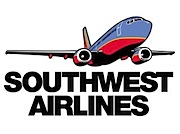
Hello everyone. This week’s issue of PlaneBusiness Banter is now posted. This week we wrap up our Q2 earnings coverage with a look at Air Canada and WestJet. Bottomline? WestJet turned in a terrific performance. For Air Canada, the airline has made good progress wading through the swamps of its myriad of labor contracts that came up this year, but the airline was close-mouthed about its efforts at pension restructuring it is trying to incorporate in the new contracts.
Meanwhile, RASM performance at Air Canada lagged, the airline still has that large overhang of debt, and oh yeah, there are those pension obligations.
Meanwhile, the airline still sounds as though it intends to go through with its idea for a new low cost carrier.
I still say that is a mistake.
In other news, we look at the DOT Air Travel Consumer Report for July. Yes, the rather obvious decline in the on-time stats of US Airways continued in July, as did the abysmal showing for American Eagle in three out of four categories.
Lots of labor follow-up this week including; Southwest pilots; AirTran pilots, United baggage handlers, mechanics at American Airlines; and Delta Air Lines‘ pilots.
How about this effort on the part of a group of Delta Air Lines‘ pilots to start their own independent union? They claim they have more than 3300 pilot members and their hot-button issue is …scope.
Meanwhile, we’ll update you on the latest in the AirTran/Southwest pilot contract activity. Last week some Southwest Airlines‘ pilots were upset after SWAPA sent out a letter detailing some of the terms of the proposed deal. Meanwhile, AIrTran pilots have yet to see anything, as their MEC still hasn’t decided if they are even going to a copy of the deal.
[Insert the voice of the old commercial for that silly game “Operation!” Only insert “Arbitration!” instead.]
And — then there was the ALPA representational election at JetBlue. JetBlue pilots voted no.
American put out more details about how it plans to “spin-off” Eagle last week. Apparently there are no third parties involved at this point in time.
Oh, we talk about crack spreads this week, Ryanair buying airport buildings, Tiger Airways taking to the skies again, Gol’s abysmal second quarter earnings, why Spirit Airlines is sizzling hot, and more.
Subscribers can access this week’s issue here.

